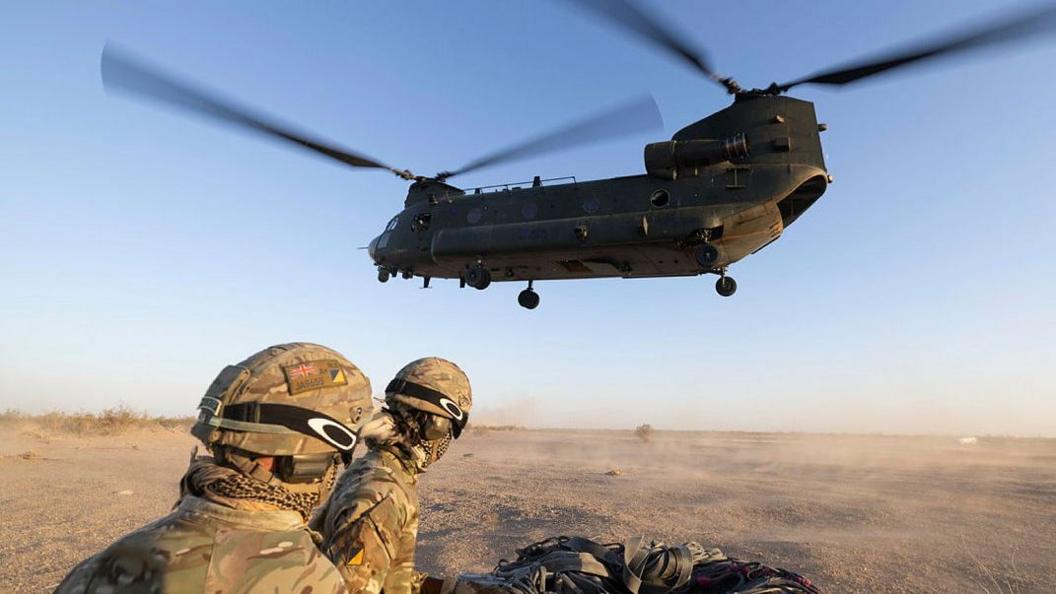MoD stress-testing how UK would cope in war
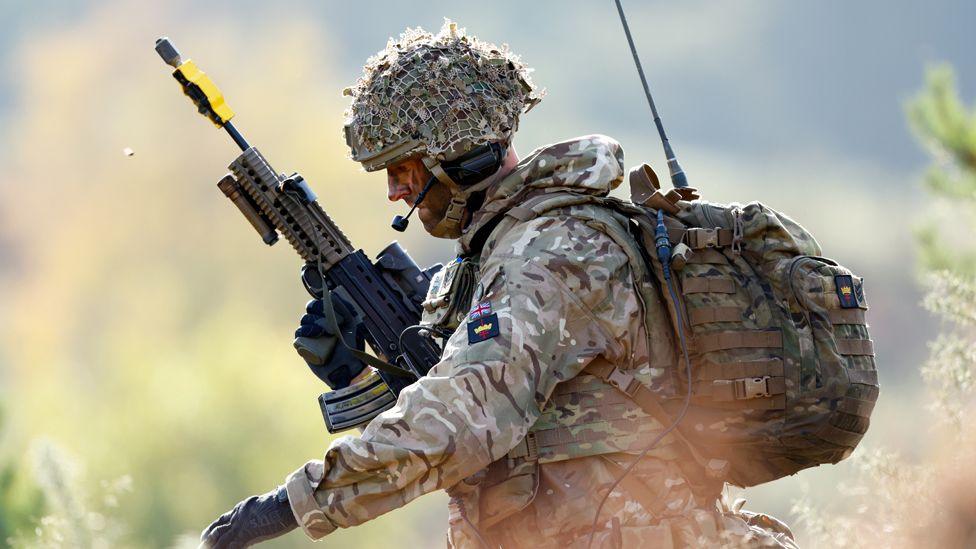
- Published
The Ministry of Defence is war-gaming a major conflict to "stress-test" supplies of ammunition and equipment in a war time scenario.
The MoD says it is the first war games to involve representatives of the defence industry – alongside military commanders and officials.
The week-long exercise began on Monday morning and is taking place at the Defence Academy in Shrivenham, Oxfordshire.
The Defence Secretary John Healey said the reason for the exercise was to ensure government and industry "are capable of innovation at wartime speed".
Healey told the BBC the war-gaming would work through "a range of scenarios in which we may be faced by conflict, we may be faced with protracted fighting and we may be faced with severe disruption in the supply chains".
The war-gaming coincides with the launch of the government’s defence industrial strategy.
The defence secretary says the strategy will help create a more innovative and resilient supply chain, and boost British industry.
Speaking to the London Defence Conference, Healey said his message was to "invest in defence and send a strong signal to Putin" and national security was the foundation for growth.
Russia's war in Ukraine has highlighted glaring gaps in Europe's ability to sustain a long conflict, with industry initially slow to respond.
In 2021 the former head of the US Army in Europe, Lt Gen Ben Hodges, told MPs the British Army quickly ran out of ammunition in a war-gaming exercise.
He said the entire British Army's inventory was exhausted with every bit of important ammunition expended before the 10-day exercise was completed.
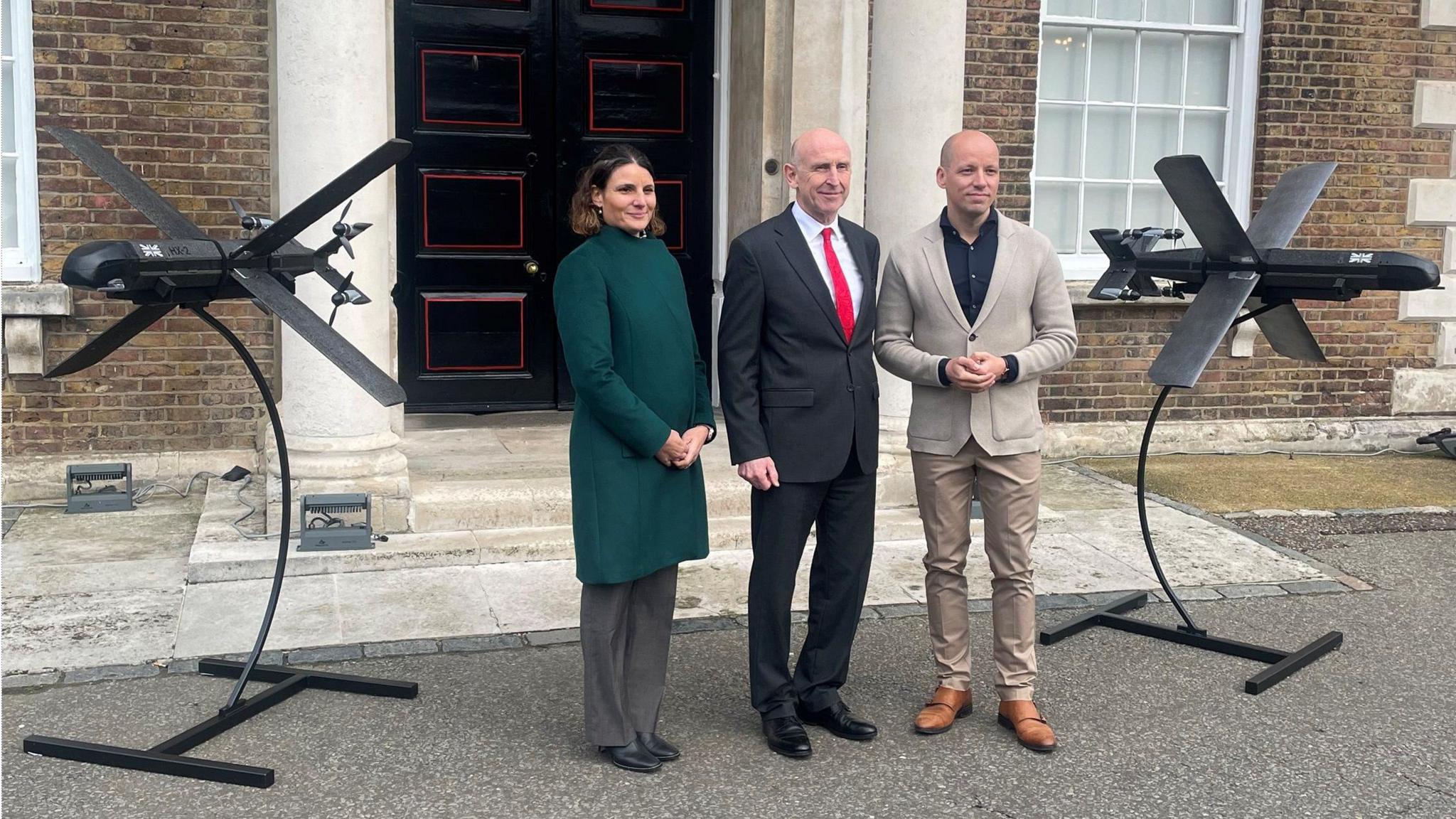
John Healey with representatives of the firm Helsing and its strike drone HX-2
Officials say that before Russia's full scale invasion of Ukraine, all Nato allies combined were only able to produce tens of thousands of 155mm artillery shells a year.
The 32 members are now able to manufacture two million rounds a year. That is a dramatic increase, but still short of Russian production levels – an estimated three million artillery shells a year.
The MOD's war-gaming this week will focus on the supply chains for artillery munitions and uncrewed systems – also known as drones.
They are the very same stocks being expended in their thousands every week in Ukraine.
An MOD official said the war-gaming would play out "real-time, war-time scenarios" and place realistic stresses on supply chains.
The purpose of the exercise is to understand vulnerabilities in the supply chain and to inform future investment decisions.
Defence companies taking part in the exercise include BAE Systems, MBDA, Lockheed Martin and Babcock.
The government's defence industrial strategy is due to be published in the spring. It will form part of a wider defence review currently underway.
The government has promised to increase defence spending. It says it will set out a path to reaching a target of spending 2.5% of GDP on defence next year.
Related topics
- Published26 August 2024
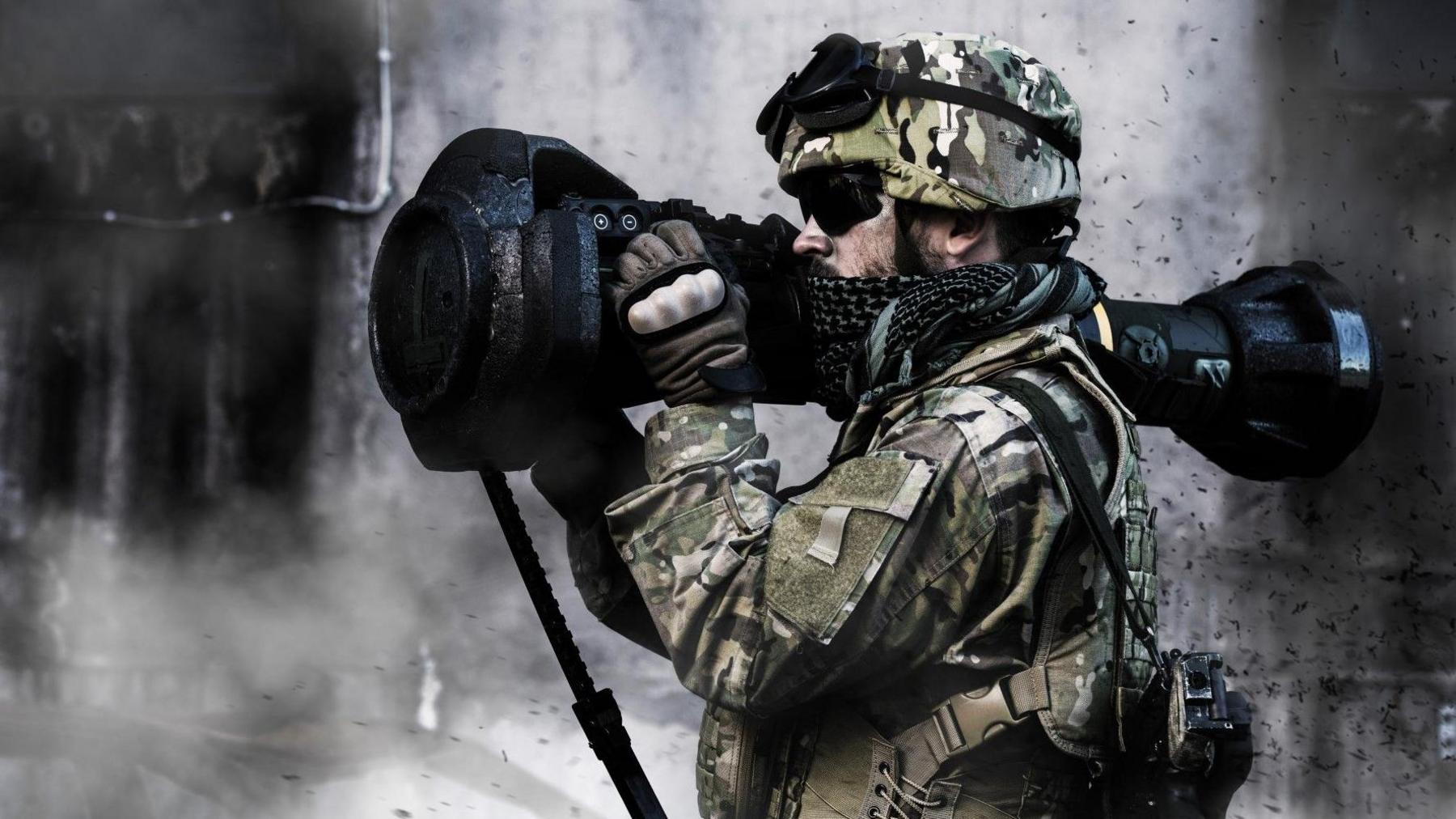
- Published23 July 2024
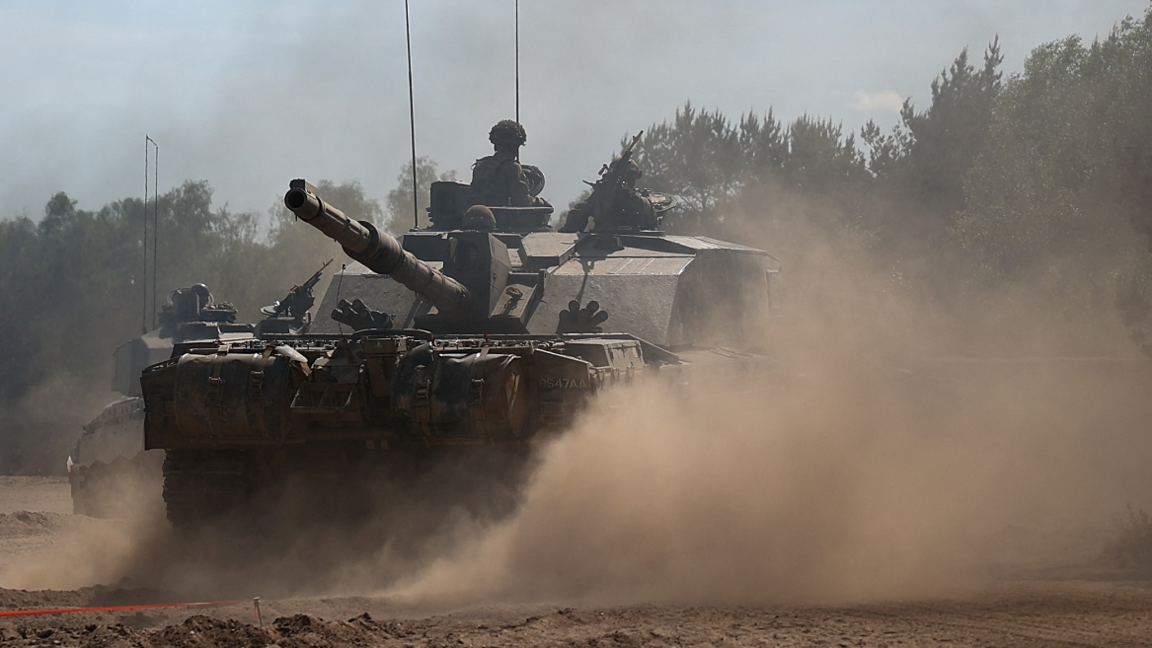
- Published20 November 2024
